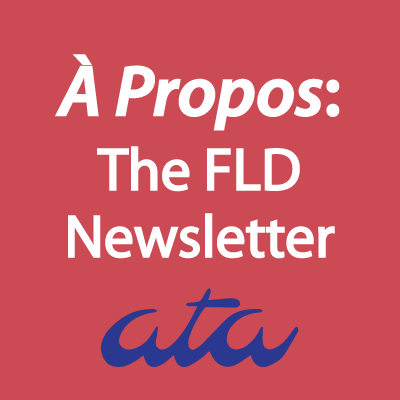When I saw that ATA’s 58th Annual Conference in Washington, DC included ATA’s first Translation and Interpreting Advocacy Day I jumped at the chance to attend. I wasn’t alone: forty-five translators and interpreters participated. We met with staffers in congressional offices to inform them about issues affecting the T&I professions.
This event was arranged by the Joint National Committee for Languages (JNCL). JNCL, along with the National Council for Languages and International Studies, lobbies Congress and the Executive Branch on behalf of the language community.
About a week before the event we received statements on advocacy issues and recommendations for action that were the foundation of our discussions. We had three topics:
- Inaccuracies in Prevailing Wages Rate Determinations for Translators and Interpreters
- Machine Translation vs. Human Translation
- Language Services Procurement: The Need for the Best Value Approach
These position papers impressed me when I received them, and I tried to absorb the material as I prepared for the day. As well as the papers we were to hand off to the staffers, we received several pages of helpful tips on what to expect and information on navigating Capitol Hill. (Tunnels: who knew?)
In the morning JNCL gave us training on how to present these problems and solutions to the people we met. After lunch they bussed us over and set us loose. Three of us present were from Colorado, so I had reassuring company for our first two meetings with our Senators’ offices. Then I was on my own as I went to my Representative’s office. Having the statement papers to fall back on when I was nervous was very helpful.
We had been warned in the training to expect a range of responses from staffers and to avoid using any keywords that might trigger partisan hackles: better not to mention the ACA in my Freedom Caucus Representative’s office, for instance. In practice the receptions varied from dry to warm and friendly, without any awkwardness. None of the staffers I met appeared to know anything much about language issues and how our industry works. Two seemed to think that using machine translation was not a wise option for anything that mattered, so that led to some light humor. I felt that we had raised awareness of how our industry operates—the idea of many of us being self-employed, small business owners. One of the staffers seemed especially intrigued by the ideas in the three papers we discussed, appeared to be convinced that they had value, and told us who he had shared them with when we followed up.
I hope that among the 45 of us we managed to influence some of these Counsels or Assistants to a point where they will reflect on what we said and tell their bosses, and also that this will just be the first of many such opportunities for ATA. In addition, I and many others who participated can say that this was a valuable life experience and are thankful to have had the opportunity.
Karen Tkaczyk has been a Fr>En technical translator since 2005. She is the current ATA Secretary.
